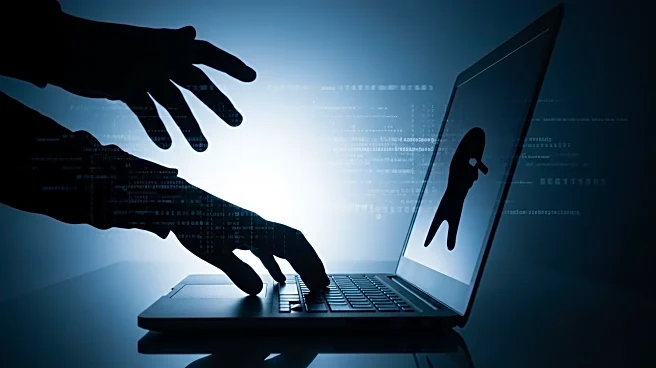What's Happening?
Suspected cyber attackers linked to the Chinese Communist Party have impersonated Representative John Moolenaar, the Republican chair of the House Select Committee on China, in a series of attempts to steal sensitive data related to US-China trade negotiations. The hackers sent multiple emails designed to deceive recipients into opening files and links that would provide access to information on trade talks. These emails targeted US government agencies, business organizations, law firms, and at least one foreign government. The committee's analysis suggests that the hackers used software and cloud services to cover their tracks, indicating a state-sponsored intrusion. The committee has alerted the Federal Bureau of Investigation and the US Capitol Police about the incident.
Why It's Important?
This cyber-espionage attempt underscores the ongoing tensions between the United States and China, particularly in the realm of trade negotiations and foreign policy. The allegations of Chinese-backed cyber activities could exacerbate existing strains in the tariff truce between the two nations, which is set to expire in November. The incident highlights the vulnerabilities in cybersecurity that can impact national policy deliberations and negotiation strategies. It also raises concerns about the security of sensitive information and the potential influence of foreign entities on US policy-making processes.
What's Next?
The committee's statement suggests that the cyber-espionage attempt is part of China's broader offensive cyber operations aimed at leveraging American strategy against Congress and the Administration. As the FBI investigates the incident, there may be increased scrutiny on cybersecurity measures within government agencies and organizations involved in trade negotiations. The outcome of these investigations could influence future US-China relations and trade discussions, particularly regarding export restrictions on rare earth magnets and key technologies.
Beyond the Headlines
The incident raises ethical and legal questions about the use of cyber-espionage in international relations. It highlights the need for robust cybersecurity protocols and international cooperation to combat state-sponsored cyber threats. The event may also prompt discussions on the balance between national security and diplomatic engagement, as well as the role of technology in shaping global power dynamics.








